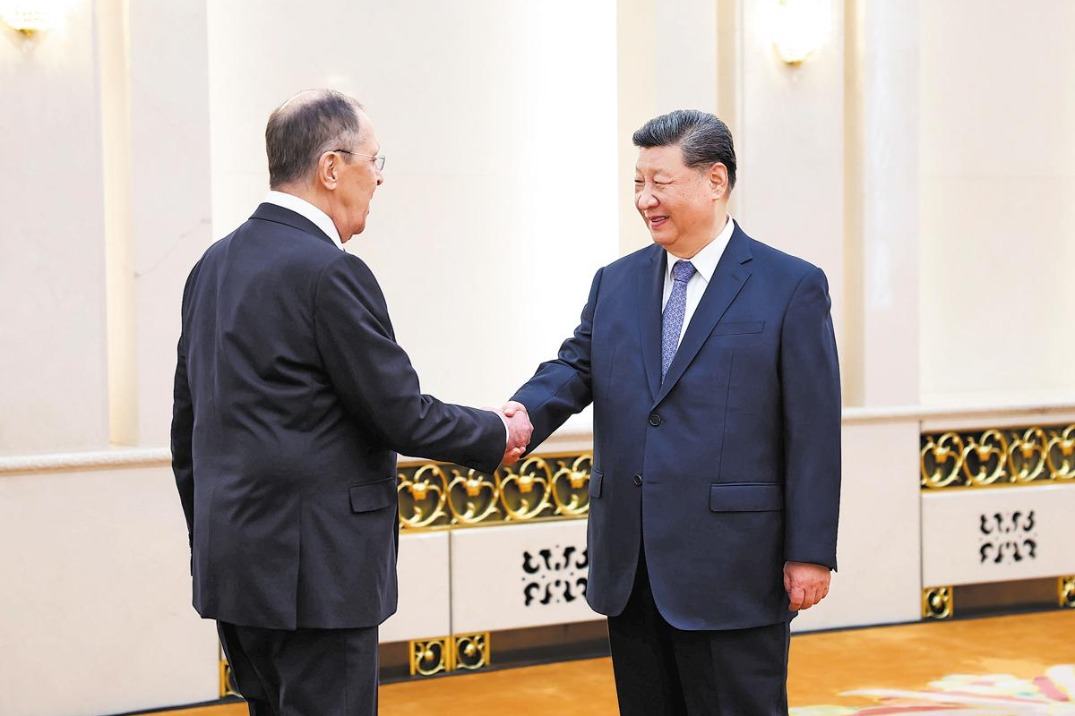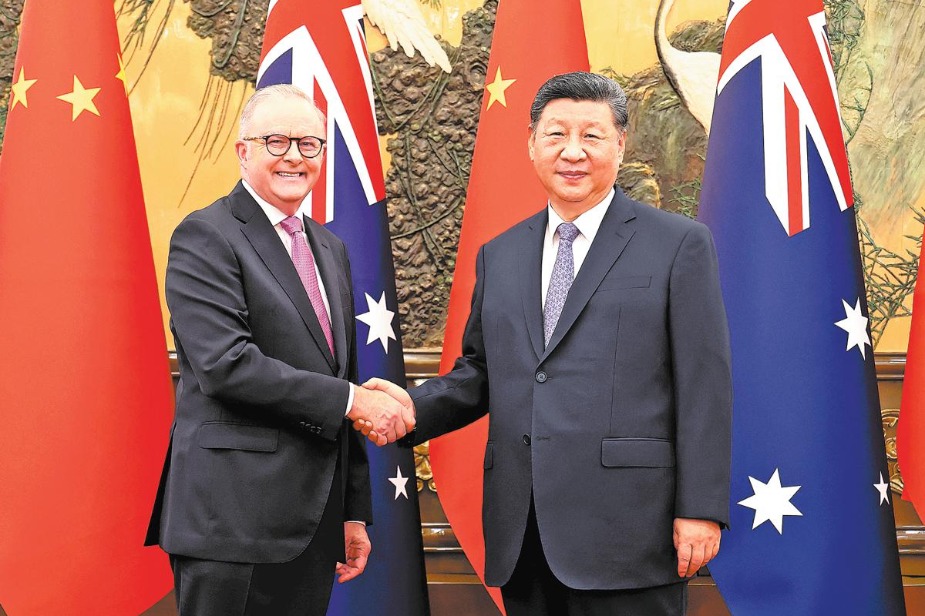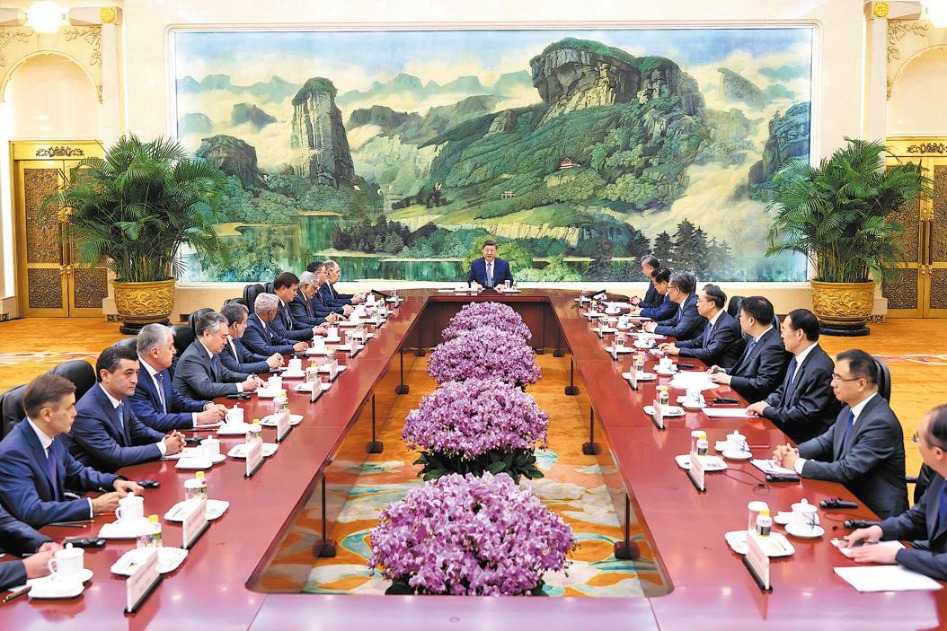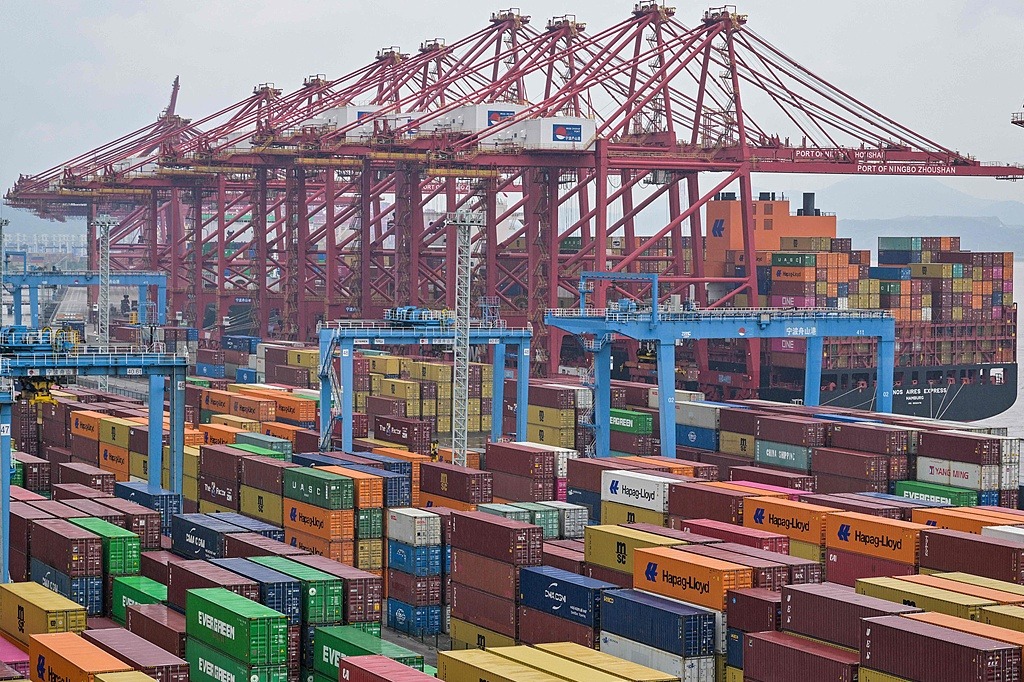The facts and China's position on China-US trade friction

Chinese companies are one of the main targets of the US abuse of national security reviews. Since the establishment of CFIUS, US Presidents vetoed four transactions based on the Committee's recommendation, all targeting Chinese firms or their related businesses. From 2013 to 2015, CFIUS reviewed in total 387 transactions concerning 39 economies, among which 74 were transactions involving investment from Chinese companies, accounting for 19 percent of the total, the largest share among all countries for three years in a row. The data on Chinese corporate investment being vetoed and blocked by the US (Table 4 and Table 5) shows that CFIUS review of Chinese investment has extended its reach from semiconductors and financial sectors to food processing sectors including swine feed. In addition to an absence of transparency in the review process, excessive discretionary power, and lack of explanations for vetoes, there is an even more serious issue-that normal transactions are being obstructed on the grounds of national security.
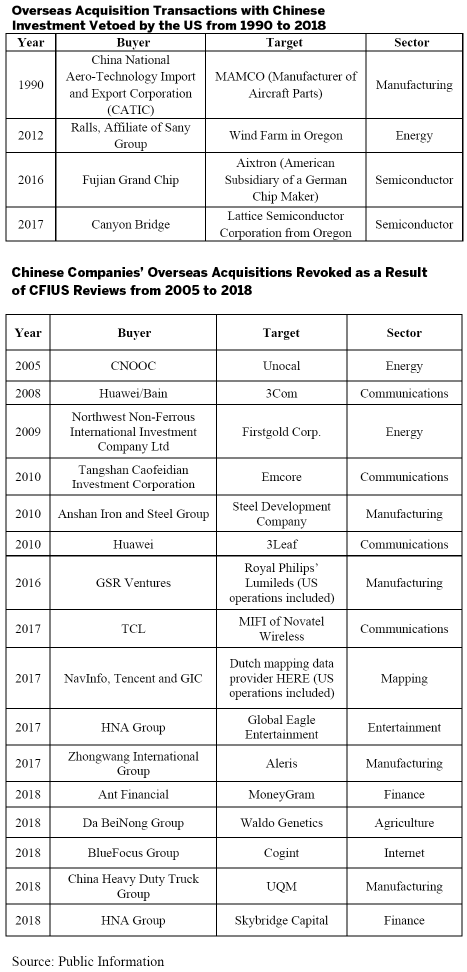
The United States is preparing new legislation for more stringent foreign investment security review. On August 13, 2018, the President signed the National Defense Authorization Act for Fiscal Year 2019, part of which is the Foreign Investment Risk Review Modernization Act (FIRRMA), which strengthens the authority of CFIUS, expands the scope of transactions covered, recruits additional staff, establishes the term of "countries of special concern", and adds additional factors to be considered in reviews. All of this points to a clear trend of tighter investment reviews. In particular, it requests the Department of Commerce to submit a biennial analysis on Chinese investments in the US before 2026.40

















